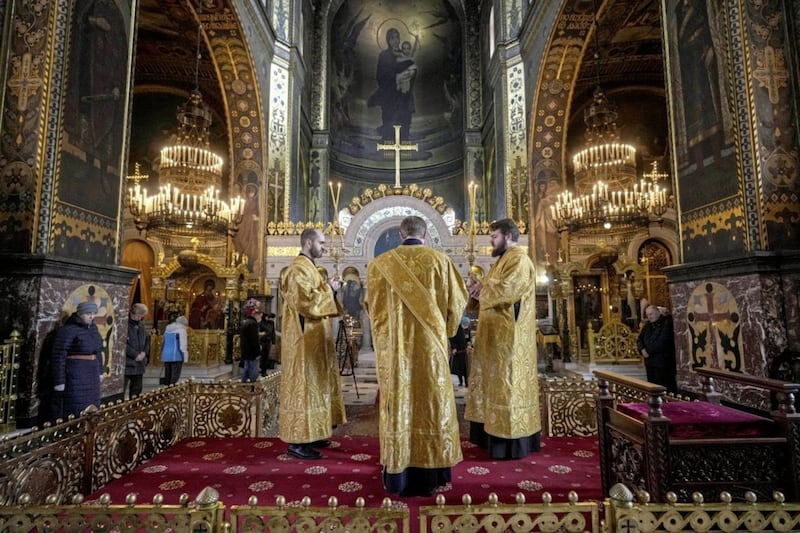THERE is no doubt that the people of Ukraine are being pounded by evil on a huge scale, and enveloped in deep darkness and distress. And we are able to see this unfolding day after day on our TV screens, and able to read heart-rending accounts of what is happening to individuals, families and communities in our newspapers and on social media.
Light, however, has not been extinguished. The refusal to be intimidated by a world superpower; the open hearts and open homes of so many just across the Ukrainian borders, welcoming and caring for over 1.5 million refugees (so far); the wonderful large-scale responses of people here and across much of Europe to provide the aid and support so dearly needed; the unambiguous response of many governments and big companies - even if that is partially motivated by self-interest and concern for public reputation.
It is certainly understandable, but nonetheless very troubling, that there is very little public thinking or discussion about why evil continues to flourish in our so-called modern world.
Think of the ongoing quagmire of Afghanistan, the awful plight of the Uighurs in China, the genocide of Rwanda, the oppression of minority groups across the world, the persecution of religious communities... the list of ongoing horrors seems to get longer rather than shorter.
Is it all simply a failure of world and local politics on a grand scale? Have the United Nations and its many agencies simply been overwhelmed by the scale of the atrocities? Do governments simply look after the immediate issues and ignore the long term because there are few votes in doing so?
There may well be lots of truth in such questions, but I find it impossible to find any political analysis that deals satisfactorily with the awful reality of evil in a God-forsaking world.
Contrary to public impression, Christian teaching addresses this awful reality head on.
In particular, the poetic book of Psalms in the Bible pulls no punches. Some words could have been written this week in relation to Ukraine or during the takeover of Afghanistan by the Taliban.
For example, speaking about the man devoted to evil, we read this in Psalm 10:
He sneers at all his enemies. He says to himself, 'Nothing will ever shake me.'
He swears, 'No-one will ever do me harm.' He lies in wait near the villages; from ambush he murders the innocent.
His eyes watch in secret for his victims; His victims are crushed, they collapse; they fall under his strength.
He says to himself, 'God will never notice; he covers his face and never sees.'
This is followed up by a call to God for the evildoer to be accountable for his evil, and for the protection of God on those who suffer under him.
That call is not pie-in-the-sky. For example, last Sunday a friend here was sent a video of the rich singing at a church service that very morning, alongside a message saying 'We are being bombed right now'.
And their experience of devastation is simply too awful to be detailed in an article like this. Yet they sing and honour God where they are - and have no desire for revenge. They seek deliverance from the oppressor, and they seek to honour God in the midst of their devastation.
I am far from sure that I want a return to the comfortable environment that so many of us knew prior to Covid and prior to this truly awful war.
Increasingly, my heart yearns instead for real light and deliverance from God in the face of the ongoing evil in God's world, and amongst the people for whom Christ died.
Lord, have mercy... please.
The Rev Dr Norman Hamilton is a former Moderator of the Presbyterian Church.









